
Three cheers for Olympic madness – back when you could squeeze this many riders on a podium without triggering a city-wide state of emergency. Photo: Arnd Bronkhorst/FEI
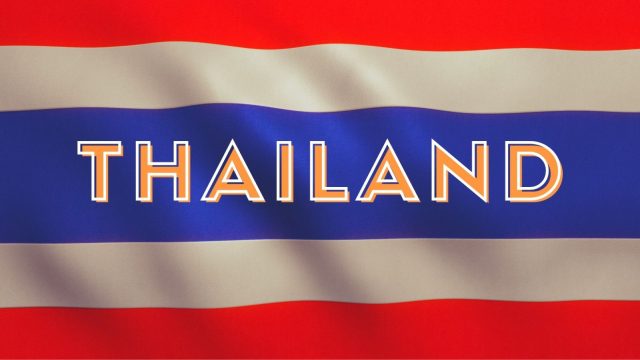
Chef d’equipe: Nara Ketusingha, who is a tour de force in the Thai equestrian community: a former competitor himself, he’s the Secretary General of the Thai Equestrian Federation and has managed teams across the disciplines at multiple major championships, including the 2014 World Equestrian Games.
Team members:
- Arinadtha Chavatanont and Boleybawn Prince
- Weerapat Pitakanonda and Carnival March
- Korntawat Samran and Bonero K
Team substitute: none
Where did they qualify? Like China, Thailand earned their ticket to Tokyo at the special qualification event held at Saumur, France in 2019. This was held at the CCI3*-L level and intended as a way for nations from Groups F and G (Africa and the Middle East; South East Asia and Oceania) to gain a place at the Games.
When did they last win a medal? Again, like China, this is a historic first team for Thailand at the Games, though not the first time the country has been represented in this discipline: Nina Ligon became the first woman ever to represent an Asian country in Olympic eventing when she came forward at London 2012.
What’s their form like? They had to work hard to get their necessary individual qualifications together, although each partnership is respectably solid. Without a reserve pair, though, they’ll need to focus on staying safe and sensible so they can aim to complete and lay a foundation for the future. They’re not ready to be competitive yet, but doing their job well this week will make it more likely for them to come back as competitive entities in the future.
What’s their secret weapon? A seriously top-notch team coach in the form of French five-star winner Maxime Livio. His girlfriend, showjumper Mathilde Montginoux, is supporting the team as head groom, too, so expect a finely-honed system for keeping these three horses in tip-top condition through the week.
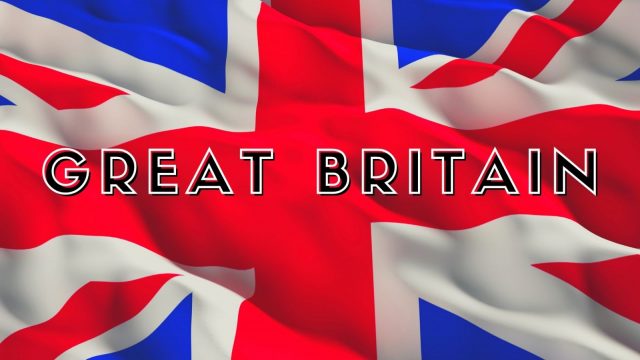
Chef d’equipe: Chris Bartle and Richard Waygood, who both joined the team in late 2016 after a disappointing Rio performance a few months prior. Since then, the team has gone from strength to strength, and it’s no suprise: Chris Bartle was previously the architect of Germany’s success, and Richard Waygood helmed the British dressage team during its extraordinary trajectory from zero to hero.
Team members:
- Laura Collett and London 52
- Tom McEwen and Toledo de Kerser
- Oliver Townend and Ballaghmor Class
Team substitute: Ros Canter and Allstar B
Where did they qualify? Great Britain handily earned their ticket to Tokyo while winning team gold at the 2018 World Equestrian Games.
When did they last win a medal? The British team took silver at the London Olympics in 2012, though they were understandably slightly disappointed not to take the win at their home Games. Prior to that, they took bronze at Beijing in 2008, silver at Athens 2004, Sydney 2000, Seoul 1988, and Los Angeles 1984. To find a team gold, you have to go all the way back to Munich in 1972, where they won their second consecutive gold after success at Mexico City 1968. They also took gold at Stockholm in 1956 and bronze at the ‘Nazi Games’ in 1936, but that was, perhaps, something of a fluke before the true birth of British eventing in 1948. This is certainly one of the world’s most dominant eventing nations – and easily the team that’ll put up the biggest fight this year – but Olympic gold has proven evasive for a remarkable amount of time. Individually, Great Britain won gold in 2004, when Leslie Law and Shear L’Eau were retroactively awarded the win after a tribunal stripped Bettina Hoy of victory after a starting error in the final phase. Pippa Funnell took bronze that year, and in 2008, Tina Cook took bronze with Miner’s Frolic. In total, Great Britain has won nine individual medals, with just two golds – the other was won by Richard Meade and Laurieston in 1972.
What’s their form like? When a country is able to put the reigning World Champions in as reserves, you know they’re almost ludicrously on form. Anything can happen in eventing – and certainly at the Olympics – but on form alone, this is the team that comes forward as gold medal favourites. Each of the three combinations on the squad has won a CCI5* (and Ballaghmor Class has won two, including this spring’s tough Kentucky over a course designed by Tokyo designer Derek di Grazia). Unusually for the British team, though, none of the four riders has ever been to an Olympics before, and all have been working towards this moment for their entire careers. With their amassed experience, the pressure shouldn’t throw a spanner in the works, but there’s always a chance of that when your first Olympic experience coincides with the lucky circumstance of being the hot favourite.
What are their secret weapons? Ian Woodhead. The Yorkshire-based trainer – and father of top eventer Holly and top dressage rider Amy – has the magic touch and is able to finely-tune the riders’ warm-ups so they go into the ring at their absolute peak. With this team of first-phase phenoms, he’ll be an unbelievable asset that’ll likely push GB into a first-phase lead.

Chef d’equipe: Erik Duvander, who previously helmed the Kiwi team and stepped into the US chef role back in 2017.
Team members:
- Phillip Dutton and Z
- Boyd Martin and Tsetserleg TSF
- Doug Payne and Vandiver
Team substitute: Tamie Smith and Mai Baum
Where did they qualify? The US missed out on a qualification at the 2018 WEG, but rallied to nab their spot at the 2019 Pan-American Games in Lima, Peru, where they won gold. Boyd and Tsetserleg took individual gold there, too, for good measure.
When did they last win a medal? Team USA is on the hunt for its first Olympic team medal since Athens 2004, where they finished in bronze position. They did the same at Sydney 2000, and took silver at Atlanta 1996, Munich 1972, Mexico City 1968, and the last Tokyo Games in 1964. Going way back into the annals of eventing history, they were gold medallists at London 1948 and Los Angeles 1932, bronze medallists at the first Olympic eventing competition in 1912, and bronze medallists at Helsinki 1952, too. Individually, the US had a heyday after the First World War that continued through the Second, with four medals won between 1924 and 1948, and another four from 1968 to 1984 – oh, and another four from 1996 to 2008, including individual gold for David O’Connor and Custom Made at Sydney in 2000. The last individual medal won by the US was Phillip Dutton’s bronze at Rio in 2016, which he earned aboard Mighty Nice.
What’s their form like? Individually strong, but it hasn’t quite come together for the team at a championship for a while. They finished eighth at the WEG in 2018 after both Boyd and Tsetserleg and Will Coleman and Tight Lines ran into trouble on course, and they were 12th at the Rio Olympics when only Boyd and Phillip completed the competition. They have a very, very strong substitute option in Tamie and Mai Baum, who would be a strong shout for individual gold if they were on the team, but if they have to pull her in once the competition has started, they’ll likely push themselves out of the medals with that substitution penalty. All three will need to bring their A game – and Boyd will need to put a crashing fall at Kentucky in his last run with Tsetserleg well behind him. If all goes to plan, we could see them step onto the podium.
What’s their secret weapon? Showjumping gold medalist Peter Wylde, who hasn’t just been coaching the US riders over fences – he’s also been getting on their horses himself where necessary to provide useful feedback.
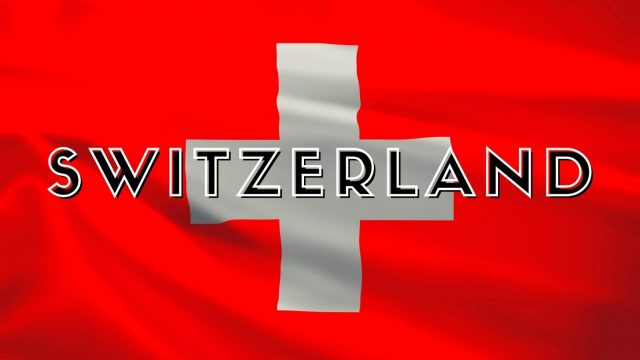
Chef d’equipe: Dominik Burger, who is also the team vet. We like a multipurpose man.
Team members:
- Robin Godel and Jet Set
- Melody Johner and Toubleu du Rueire
- Felix Vogg and Colero
Team substitute: Eveline Bodenmüller and Violine de la Brasserie
Where did they qualify? Switzerland took the very last team ticket, which was awarded to the highest-placed non-qualified team in the final rankings of the 2019 Nations Cup series. They beat Belgium to the spot in a tense showdown at Boekelo.
When did they last win a medal? Switzerland has won an individual and a team medal in eventing, and both at the 1960 Rome Olympics: they took silver that year, while Anton Bühler and Gay-Spark (yes, really) took individual bronze.
What’s their form like? Constantly improving. Robin Godel is an enormously underrated cross-country rider, though Jet Set’s dressage remains resolutely average, and he should be able to do some serious chasing on cross-country day. Felix and Colero are a formidable pair who’ve proven they can place at the top level, and while Melody and Toubleu are a new partnership – the gelding was ridden through 2019 by Switzerland’s Tiziana Realini – they look solid. We’ll be looking for a top-ten finish for Felix and a respectable result for the team. They might not quite make the podium in this company, but they should certainly improve upon 16th at the 2018 WEG. They didn’t field a team at Rio, so they’re already stepping up there.
What’s their secret weapon? Andrew Nicholson. He was brought in as cross-country coach in the lead-up to the 2019 European Championships and has remained in situ ever since, despite the difficulties of the pandemic. It’s a job he clearly adores, and the young Swiss team are flourishing under his intuitive instruction. He’s also responsible for some of their horsepower: Robin Godel will ride Jet Set, a former CCI5* mount of Andrew’s. Andrew’s mantra is ‘never change a winning team’ – and so he’s worked to support each rider’s current system and tweak the bits that need help, rather than do a total overhaul.
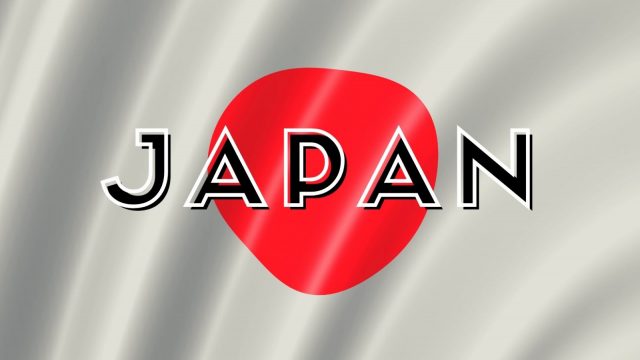
Chef d’equipe: Chef Shigeyuki Hosono is joined by team trainer Laurent Bousquet, who heads up the good ship Team Japan after a stint as France’s coach. He’s been in the role since 2016, having done a stretch from 1991 to 2004 as well.
Team members:
- Yoshiaki Oiwa and Calle 44
- Toshiyuki Tanaka and Talma d’Allou
- Kazuma Tomoto and Vinci de la Vigne
Team substitute: Ryuzo Kitajima and Feroza Nieuwmoed
Where did they qualify? As the host nation, Japan automatically gets a team slot – but don’t let that downplay your sense of the scope of their achievements over the past few years. If they hadn’t already had a guaranteed spot, they’d have picked one up at the WEG, where they finished fourth.
When did they last win a medal? Though Japan’s eventers have never medalled at the Olympics, they’re not as new of an entity on the equestrian world stage as you might think – in fact, the showjumping individual gold medal in 1932 was won by Baron Takeichi Nishi, who set an early standard for equestrian excellence in the country.
What’s their form like? While they’ll have a fight on their hands to step onto the podium, they’re certainly capable and among the fan favourites to do so. They finished just off the podium at the 2018 WEG with a team that including both Talma d’Allou and Calle 44, who delivered fast clears over a tough track. (Incidentally, Vinci de la Vigne finished seventh there – but that was with France’s Astier Nicolas. Kazu took the ride that winter.) Japan has also led the first phase at an Olympics before: Yoshi Oiwa and Noonday de Conde went into cross-country at London 2012 in the top spot. Expect Kazu to make a good effort at troubling the leaders between the boards: he’s a first-class dressage rider, and while he and Vinci tend to score in the high-20s, they come here off the back of a 23.5 in the CCI4*-S at Bicton.
What are their secret weapons? It’s not so secret, really, but it’s chef d’equipe Laurent – or, in this case, his contacts in France. He’s been instrumental in the Tokyo pathway for the team since 2016, not just by orchestrating training and competition schedules but by using his French connections to secure some exceptional horses from his fellow countrymen, including Vinci de la Vigne, originally piloted by Astier Nicolas. Other excellent horses sourced for Japanese riders on the trail to Tokyo include Rio gold medallist Bart L, originally ridden by Mathieu Lemoine and now ridden by Yoshi Oiwa, and Ventura de la Chaule, who moved from Nicolas Touzaint to Atsushi Negishi.

Chef d’equipe: Performance Pathways Manager Will Enzinger takes on the chef role in Tokyo. It’s a job that’s tended to move around from championship to championship – even team rider Stuart Tinney has previously worn this hat – and top-level competitor and coach Will is forward-thinking and well-suited to the job.
Team members:
- Andrew Hoy and Vassily de Lassos
- Shane Rose and Virgil
- Stuart Tinney and Leporis
Team substitute: Kevin McNab and Don Quidam
Where did they qualify? They booked their ticket to Tokyo after finishing sixth at the 2018 World Equestrian Games in Tokyo, where six spots were available for the highest-placed unqualified teams.
When did they last win a medal? Australia took the team bronze medal in 2016, team silver in 2008 at Beijing, and won three consecutive team golds from 1992-2000. They also took bronze medals at Montreal 1976 and Mexico City 1968, and gold at Rome 1960. They’re part of a three-way tie for the most team victories in eventing – that’s four, and Germany and the USA are the only other nations to have managed it. Their most recent individual medal was Andrew Hoy’s silver on Swizzle In at Sydney 2000, and Matt Ryan and Kibah Tic Toc took gold at Barcelona in 1992. Prior to that, you need to go all the way back to Rome in 1960 to find an Australian individual medal – but that year, the country did the one-two when Lawrence Morgan and Salad Days won gold followed by Neale Lavis and Mirrabooka in silver.
What’s their form like? Enviable – although the loss of Chris Burton from the team after Quality Purdey sustained an injury was a big blow. He’s replaced by veteran campaigner Stuart Tinney, who’ll need to use all his experience to counter the inexperience of 10-year-old Leporis. Andrew Hoy and the exceptional Vassily de Lassos will lead the way for the squad, and will be in the hunt for an individual medal, too – they haven’t finished lower than sixth in an FEI event since early 2019. Shane Rose and Virgil bring a wealth of experience to the table and should climb after their high-20s/low-30s first-phase mark. Should substitute pair Kevin McNab and Don Quidam be called into competition, we can expect some exciting things: this pair finished sixth at Kentucky this spring over a tough track designed by Derek diGrazia, who also designed the Tokyo course. Overall, the three main team members have eight Olympic medals between them.
What’s their secret weapon? A certain Mr Nelson Pessoa. The legendary Brazilian showjumper — and father of Rodrigo — has been working with the European-based Aussies for the few years to perfect their showjumping skills. Andrew Hoy recently based himself with Pessoa for ten days in Belgium en route to last month’s Luhmühlen Horse Trials in Germany. The team also kept in close contact with Bettina Hoy, who reviewed dressage videos and gave remote feedback throughout the constraints of the pandemic.

Chef d’equipe: Martin Lips
Team members:
- Alex Hua Tian and Don Geniro
- Sun Huadong and Lady Chin V’t Moerven T
- Bao Yingfeng and Flandia 2
Team substitute: Liang Ruiji and Agora de Bordenave
Where did they qualify? China earned themselves a team spot in a qualifying event at Saumur, France in 2019, which was a CCI3*-L qualifier specifically put on for Olympic regions F and G (Africa & the Middle East; Oceania and South East Asia).
When did they last win a medal? This is a historic first team for China’s eventers, who have been well represented at previous Games by Alex Hua Tian. He finished in the top ten at Rio in 2016 with Don Geniro, and will be the lynchpin of this effort, which is the culmination of plenty of work by plenty of people over the past few years building China’s equestrian scene.
What’s their form like? Alex is certainly chasing down another top ten finish, and on Don’s day, they could challenge for an individual medal. As a team, the aim is experience: they’ve worked hard to earn this spot, and in doing so, they’re helping to strengthen the foundations for a sustainable equestrian industry in China. They’re not here to fight for a podium spot, but instead to make good choices and come home all the wiser for it.
What are their secret weapons? If Alex is a secret, then he’s the worst-kept one we’ve ever encountered – so this spot must go to a family whose involvement has been very nearly as well-known. Dutch Olympian Tim Lips and his father Martin, formerly the chef d’equipe of the Dutch team, are at the forefront of building the Chinese eventing scene. Both Bao and Sun are based at their Breda stables, and Tim and Martin source horses to send back to China as well as heading over themselves to train riders and work on building the infrastructure of the industry. Martin will be on hand to help in Tokyo.
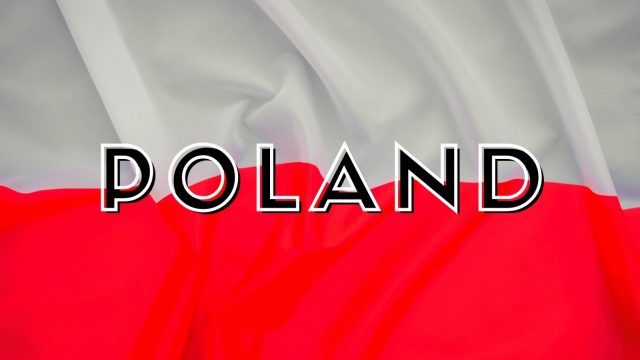
Chef d’equipe: Marcin Konarski, who splits his time between coaching duties and working as event director and course designer for Strzegom, Poland’s foremost FEI eventing venue.
Team members:
- Malgorzata Cybulska and Cenaro 2
- Joanna Pawlak and Fantastic Frieda
- Pawel Spisak and Banderas
Team substitute: Jan Kaminski and Jard
Where did they qualify? Poland nabbed a spot at the Olympics in 2019 after winning a special qualifier held at Baborowko in their home country. They faced off with Russia and Belarus in the competition, which was held to allocate a team spot to a Group C country (Central and Eastern Europe; Central Asia), and won handily, with Pawel Spisak taking the individual win top honours. (It’s worth noting, too, that the competition was open to other competitors – and Michael Jung and fischerChipmunk FRH finished second to Pawel.)
When did they last win a medal? In 1936, at the colloquially-named ‘Nazi Games’ in Berlin, where they won the team silver. They also took bronze at Amsterdam in 1928.
What’s their form like? Realistically, this is a chance to build form and experience for the relatively young and inexperienced team – with the notable exception, of course, of team lynchpin Pawel Spisak and Banderas. This experienced five-star and championship combination can realistically aim to try to break into the top ten.
What’s their secret weapon? Indirectly, it’s Michael Jung: he’s long been Pawel’s coach and friend, and has imparted a wealth of wisdom that the rider has no doubt brought back to his teammates. This is Pawel’s fifth Olympics – a remarkable feat, when you consider that he’s still in his 30s – and his compatriots will benefit from his finely-honed system and bountiful experience.

Chef d’equipe: British-based Fredrik Bergendorff, who has proven a solid captain for the Swedish efforts so far (and also wears a pair of chinos exceptionally well).
Team members:
- Louise Romeike and Cato 60
- Ludwig Svennerstal and Balham Mist
- Therese Viklund and Viscera
Team substitute: Sara Algotsson Ostholt and Chicuelo
Where did they qualify? At the European Championships in 2019, where there were two spots on offer for the two best-placed thus-far unqualified teams. Sweden took the first, with their bronze medal finish, while Italy took the second.
When did they last win a medal? Sweden were the dominant force in eventing in the early 20th century, and it was at the 1912 Stockholm Olympics that eventing as a sport made its debut. They were the gold medallists there, of course, and at Antwerp in 1920, and then they took silver at Paris in 1924. They disappeared for a couple of decades from the podium but returned for silver at London 1948, gold at Helsinki 1952… and then the reign of Sweden as eventing’s most formidable team was over. They haven’t won a team medal since, though the took individual silver at London 2012 when Sara Algotsson Ostholt and Wega wowed the world. Their most recent individual medal prior to that was at Munich in 1972, where Jan Jönsson took bronze with Sarajevo. In total, they’ve won three individual bronzes, two silvers, and four golds.
What’s their form like? They’re another team that’s improving all the time, and their line-up here is particularly exciting. Louise Romeike is a force to be reckoned with in any company, and she and Cato 60 finished fourth in the final selection trial at Luhmühlen CCI4*-S last month. Ludwig knows his way around an Olympics, and rides a very experienced horse, and debutante Therese Viklund has been very impressive competing in top company in the UK with the one-eyed Viscera. All three horses can, and should, go sub-30 – and Viscera can throw some seriously impressive marks up on his day. The Swedes were ninth at the 2018 WEG and eleventh at Rio, but this could be their moment to regain their long-coveted spot on the podium.
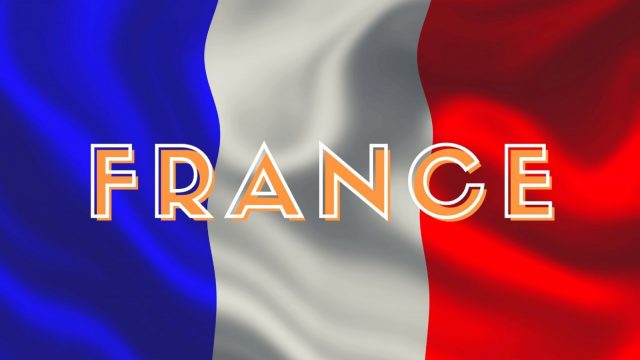
Chef d’equipe: Thierry Touzaint – uncle of rider Nicolas – continues his long reign as head of the French team. He’s tasted gold now, and will want to do so again.
Team members:
- Karim Florent Laghouag and Triton Fontaine
- Christopher Six and Totem de Brecey
- Nicolas Touzaint and Absolut Gold HDC
Team substitute: none. Karim stepped into the team after the withdrawal of Tom Carlile and Birmane.
Where did they qualify? France picked up one of the six team tickets handed out at 2018’s World Equestrian Games, where they finished in bronze medal position.
When did they last win a medal? The French team are the reigning Olympic medalists – they picked up the gold at Rio, though only substitute Karim comes forward from that team. They also won gold at Athens in 2004, with Nicolas Touzaint on the team, though that was their first team medal since taking bronze at Rome in 1960. Those three medals are the sum total of their team podium finishes since 1912, but they’ve also made an impact on the individual role-call: in 2016, Astier Nicolas took individual silver with Piaf de b’Neville, and they’ve nabbed the gold in 1948 (Bernard Chevallier) and 1968 (Jean-Jacques Guyon), as well as bronze in 1912 (Jacques Cariou) and silver in 1952 (Guy Lefrant).
What’s their form like? We’re used to seeing a French ‘old guard’ at championships, chock full of horses such as Thibaut Vallette’s Qing du Briot or Astier’s Piaf de b’Neville. But due to a combination of equine retirements and minor injuries, we’re looking at a relatively young and inexperienced roster for this year’s Games. It’s unlikely we’ll see them claim the gold again, particularly after the late withdrawal of Thibaut and ultra-consistent Qing, but they shouldn’t be written off: the stats suggest they could fight for a podium place, though the late withdrawal of Tom Carlile’s exquisite ten-year-old Birmane is an enormous blow. Though inexperienced, she represented a great hope for an individual medal.
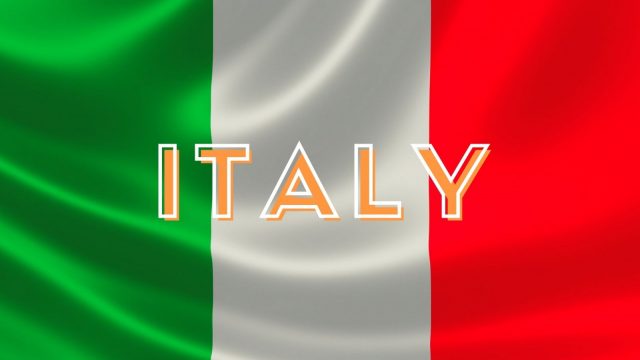
Chef d’equipe: Giacomo Della Chiesa, who himself rode at the 1996 and 2000 Olympics.
Team members:
- Susanna Bordone and Imperial Van De Holtakkers
- Vittoria Panizzon and Super Cillious
- Arianna Schivo and Quefira de L’Ormeau
Team substitute: Stefano Brecciaroli and Bolivar Gio Granno
Where did they qualify? One of the final qualification routes for teams was the 2019 European Eventing Championships at Luhmühlen, where two spots were on offer for the highest-placed non-qualified team. Italy took one of those spots after finishing fifth in a nail-biting finale.
When did they last win a medal? The last time we saw Italy on the team podium was back in 1980, at the widely boycotted Moscow Games. Italy was actually one of the countries that opted into at least a partial boycott, which was led by the Americans in protest of the Soviet invasion of Afghanistan, and so the silver medal winning team competed under the Olympic flag, rather than the Italian flag. In more normal times, though, they’ve also clocked up successes: they took gold at the last Tokyo Games in 1964 and bronze at Paris in 1924. They also took individual gold in 1980 and 1964 (Federico Roman and Mauro Checcoli, respectively), silver at Munich in 1972 (Alessandro Argenton), and bronze at Antwerp 1920 (Ettore Caffaratti).
What’s their form like? Best described as ‘waiting in the wings’ – they’re on their way, but there are a few loose ends to tie up before they step onto it. They sent a team to Rio, which Arianna and Quefira were part of, but only one team member completed – Pietro Roman and Barraduff finished 23rd, and the team ended in ninth. At the WEG in 2018, each team member managed to complete, but a few too many time penalties across the board meant they finished 12th out of 16 teams. They didn’t field a team at the Nations Cup finale at Boekelo in 2019, but they were fifth at the European Championships that year, even with some expensive issues in the showjumping. This girlpower team is packed with reasonably consistent, good jumping horses who are quick, though all are low-30s horses – but two of them come here off the back of blips at prep runs, so it’s a long shot to expect Italy to finish on the podium this week. A solid result, though, will put them in good stead to throw down the gauntlet at next year’s World Championships, which will be held on home turf just outside Rome.

Chef d’equipe: Sally Corscadden, who rode on Ireland’s bronze medal winning team at the 1993 Europeans and then served successfully as the High Performance Manager of the Young Rider squad. She launched the Under 25 Development Programme in 2013, which has helped to create a concrete pathway for talented up-and-comers, and took over chef duties after Rio. Under her guidance, the Irish eventers became Ireland’s first team to qualify for Rio.
Team members:
- Cathal Daniels and Rioghan Rua
- Sarah Ennis and Woodcourt Garrison
- Sam Watson and Flamenco
Team substitute: Austin O’Connor and Colorado Blue
Where did they qualify? At the 2018 World Equestrian Games, where they rode at their peak to take team silver. All three team members were on that team, though Sarah rode Horseware Stellor Rebound and Sam rode Horseware Ardagh Highlight.
When did they last win a medal? Ireland has never won a medal at the Olympics, despite many successes by Irish-bred and produced horses over the decades. This is due, in large part, to the fact that Ireland has become such an export hub for quality horses – often, without significant government funding for teams, riders have been forced to sell the good ones and constantly put themselves on the back foot. They’re well stocked with exceptional talent, though, and due their moment in the sun. 2018 looked very much like the start of a new era.
What’s their form like? On the up and up. They picked up that silver at the WEG – and an individual silver for Padraig McCarthy, too – and then Cathal and Rioghan Rua won individual bronze at the 2019 European Championships against much of the Tokyo field, where the team finished sixth after some issues on course. Cathal is one of the most formidable competitors in the world, and if all goes to plan, he’ll put some pressure on the leaders, particularly on cross-country day. Sarah and Sam both have significant experience too, and the confidence of having won that silver in the same company, and they’re mounted on consistent, reliable horses that can be pretty quick. They might not be obvious individual medal candidates, but if all three perform as expected, the team could fight for a podium position.
What are their secret weapons? Tracie Robinson, who has been such a significant part of the British efforts as team dressage trainer. Ian Woodhead stepped down from the role at the onset of Covid, so he could focus his attentions on his business and family in England, and Tracie is a worthy replacement: she’s coached the Brits at four Olympics and numerous other championships. She joins New Zealand’s Grant Wilson, who assists with showjumping. Oh, and of some help? Sam Watson’s EquiRatings. The data analysis company has been able to pull performance stats that the team can use to make valuable marginal gains.
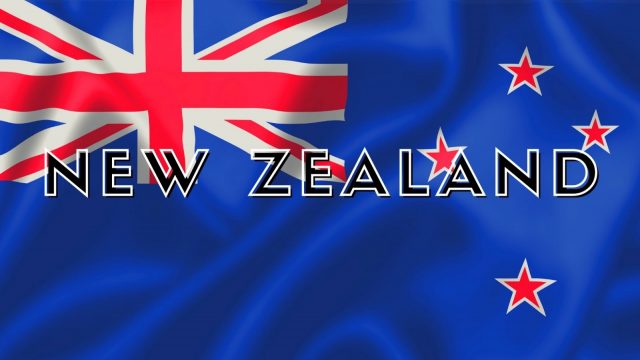
Chef d’equipe: Canada’s Graeme Thom, who took the role in January 2017 but had to resign just three months later due to complications following a spinal surgery. By July, though, he’d reclaimed his rightful role and has been helming the team ever since. One of EN’s earliest articles named him as the man with the best hair in eventing. (Sorry, Burto)
Team members:
- Jesse Campbell and Diachello
- Jonelle Price and Grovine de Reve
- Tim Price and Vitali
Team substitute: Bundy Philpott and Tresca NZPH
Where did they qualify? New Zealand were another of the six teams that nabbed a spot at the 2018 WEG – but they lived dangerously, taking the final slot available there when they finished seventh after an uncharacteristically tricky week for the team.
When did they last win a medal? They took team bronze at London 2012, which was Jonelle Price – then Richards’ – first Games. Prior to that, we saw a period of strong Kiwi Olympic form from Seoul ’88 through to Atlanta ’96 – they nabbed bronze at Seoul, silver at Barcelona ’92, and bronze again at Atlanta. That was a hot period for individual medals, too: Mark Todd took gold in 1984 and 1988 and bronze at Sydney in 2000, while Blyth Tait claimed bronze in 1992 and gold in 1996, followed by fellow countryman Sally Clark in silver medal position. That was, of course, an exceptionally strong line-up for the team – but the new guard are certainly on form to herald in the next era of Kiwi Olympic success.
What’s their form like? They’ve been unlucky at championships in recent years, which is something of a surprise when you consider how formidable the Prices are in any given international. Jonelle comes forward with the horse she’s always intended for Tokyo, which comes as no shock after Grovine de Reve’s exceptional run at Kentucky this spring – but Tim’s ride is perhaps something more of a surprise to fans who expected to see one of his plethora of five-star mounts head to Japan. He’s only had the ride on inexperienced Vitali since October 2020, and the horse is lacking some mileage after moving from rider to rider for a while, but they’ve already won a CCI4*-L together at Strzegom and were well-placed in strong company in the final selection trial at Luhmühlen CCI4*-S. Jesse and Diachello were also excellent at Kentucky and complete what looks to be a very exciting team. They’ll be ready to put that seventh place finish at WEG 2018 to bed and it won’t come as a surprise at all to see them better that fourth place from Rio.
What are their secret weapons? Luis Alvarez Cevera, who helps with the showjumping and, by all accounts, gives them the winning touch. We’ll expect the team competition to come down to the wire on the final day – could this man give them the marginal gains they need to step onto the podium?
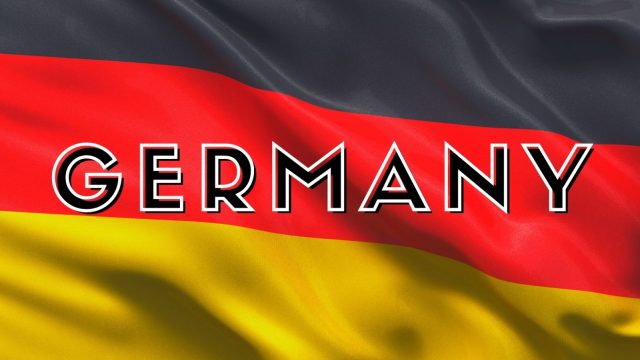
Chef d’equipe: Hans Melzer continues on in the role he’s held for twenty years. This is likely to be his last hurrah, so we’ll almost certainly see replacement Peter Thompsen supporting him on site.
Team members:
- Sandra Auffarth and Viamant du Matz
- Michael Jung and Chipmunk
- Julia Krajewski and Amande de b’Neville
Team substitute: Andreas Dibowski and Corrida
Where did they qualify? Germany nabbed one of six available tickets at 2018’s World Equestrian Games, where they finished fifth.
When did they last win a medal? How much time do you have? Germany has been the dominant force in eventing for a long time, and the country is part of a three-way tie for the most team golds won (4). They took silver at Rio 2016, gold at London 2012 and Beijing 2008, bronze at Barcelona in 1992 and at Los Angeles 1984 (well, West Germany, at that stage). West Germany also took silver at Montreal 1976 and bronze at Munich 1972, and as the United Team of Germany, they took bronze at Tokyo 1964, silver at Stockholm 1956. When they took silver at Helsinki in 1952, they were back to just being good old Germany, as they were in Stockholm in 1912 (with a different coloured flag, mind you!). They also took gold at the 1936 Games, but don’t mention the war and all that, eh?
What’s their form like? Laughably good, really – as always, they’ll be fighting for the gold. This time, the Brits are looking just a smidgen stronger, but expect this to be a match race, with every other country there to fight it out over silver and bronze. Germany won the gold at the 2019 European Championships, team silver at the Rio Olympics, and took the Nations Cup CCIO4*-L finale at Boekelo in 2019 – but their WEG in 2018 was a bit of a disaster by their standards, and they finished off the podium in fifth place. Still, Chipmunk – then ridden by Julia Krajewski – scored a sub-20 on that occasion, so that’s something to aim for, isn’t it?
What are their secret weapons? Marcus Döhring, the team’s showjumping coach, who looks like something directly out of a Jilly Cooper novel. His significance can’t be understated at this Games: the individual gold medal will likely hinge on whether or not fischerChipmunk can deliver a clear round on the final day, which is something he’s typically found difficult. At the Olympics, horses will have to jump two showjumping rounds, too – a team medal decider and then one for individual medals. But in case you need a shoulder to cry on, Herr Döhring, EN is around…
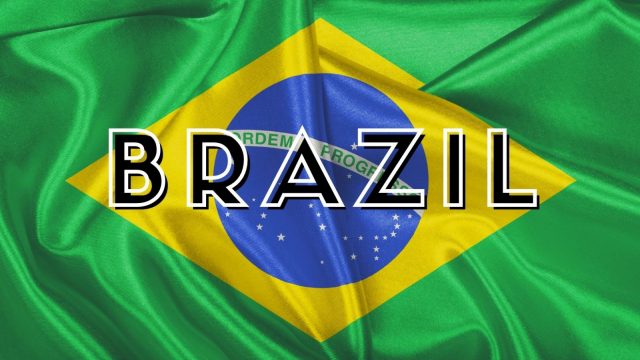
Chef d’equipe: Julie Purgly
Team members:
- Carlos Parro and Goliath
- Marcelo Tosi and Glenfly
- Rafael Losano and Fuiloda G
Team substitute: Marcelo Appel and Iberon JMen
Where did they qualify? Brazil took one of two available tickets at the 2019 Pan-American Games (held at CCI3*-L) in Lima, Peru, where they finished in silver medal position.
When did they last win a medal? Brazil has never yet won an eventing medal at the Olympics – instead, the country’s resources have been redirected to showjumping, where they’ve logged a long history of success.
What’s their form like? They finished seventh at their home Games in Rio, a respectable spot halfway down the order considering that only one of the team logged a clear cross-country round. They fared slightly worse at the 2018 WEG, finishing 15th in that strong competition. Their team features two of the most inexperienced horses in this year’s field, plus one very experienced horse in Glenfly, so the aim likely won’t be to try to make a competitive mark – rather, they’ll use this as a way to give those young horses a plethora of valuable experience to build them up to next year’s WEG and, more pertinently, the swiftly-approaching 2024 Olympics in Paris. They’re last to go in the drawn order of teams, and so they’ll get plenty of opportunity to see how the competition is playing out and plan accordingly.
What’s their secret weapon? British dressage rider Anna Ross, who’s Marcelo Tosi’s partner and has been a very useful asset to this UK-based team. Mark Todd, with whom Rafa Losano is based, has also imparted plenty of wisdom and help.
Tokyo 2020 Olympics: Website, Latest News, EN Olympic Digest Newsletter Signup, EN’s Instagram, EN’s Twitter, EN’s Coverage, The Ultimate Guide to Tokyo
Want to stay in the know with all things Olympic eventing? We’re getting ready to kick off daily editions of our Olympic Digest starting Wednesday, July 28. You can sign up for free right here.




















